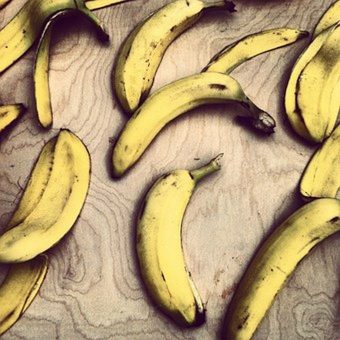
With the staggering amounts of food waste around the world, the UAE leadership has recently taken action to drastically reduce food waste in the country.
Ever since UAE Food Bank was announced to give excess food to the needy, Dubai has intensified its efforts and put up strategies to limit organic waste.
The country is looking to move from Dh14 billion losses each year to become the first in the region to achieve zero food waste.
To come closer to the goal, the Dubai Municipality has recently teamed up with UK-based Winnow, a startup that provides smart meters in hotels that helps kitchens cut food waste in half by automatically measuring what’s put in the trash bin. The collaboration is under the Dubai Future Accelerators programme that allows the private sector to work closely with public entities to co-create breakthrough solutions for the public good.
Under the smart system, a meter placed under the trash bin is connected to an iPad that records top five areas and items of waste, helping chefs to make better decisions and manage waste.
On average, hotel kitchens waste up to 20 per cent of food purchased, and the number doubles during the holy month of Ramadan due to the recurring lavish Iftar and Suhoor buffets.
Ignacio Ramirez, operations manager for MENA at Winnow, noted that some sites waste Dh3,000 worth of food a day, which amounts to Dh1 million a year.
Working over seven hotels in Dubai, the smart meter has so far contributed to reducing 50 per cent of food waste in hotels, sometimes the reduction is notched up to 70 per cent. “You can’t blame chefs for wasting large amounts of food; they can’t keep track of their losses,” said Ramirez.
Ramirez said the key to reducing food waste in hotels is helping chefs and managers keep track of losses and measure it financially. “For example, if they saw in their record that they are wasting Dh1,000 worth of croissants a month, they’ll automatically make better decisions next time they purchase food.”
Bobby Krishna, food safety specialist at DM, said the Food Safety Department aims to reduce the waste generated by hotels to five per cent. He noted that the next step is to reduce the waste gradually until it reaches zero, adding that some hotels have already limited their waste to two per cent.
Ramirez said since 85 per cent of food in UAE is imported, 20 per cent is a huge loss. Winnow will work with 15 more hotels by May. In June, 40 hotels are expected to be trying the smart meters.
Winnow works with 1,000 hotels and catering sites worldwide. Ramirez said the smart meter can allow the government to benchmark hotels that help in the profitability of the hospitality industry.
In UAE’s average households, 39 per cent of waste is food, and the ratio increases to 55 per cent (1,850 tonnes) during Ramadan, according to Dubai Municipality’s estimates. In 2016, the municipality recorded 27 per cent of waste produced in Dubai as organic food, consisting mainly of 88.8 per cent food.
However, Ramirez said the culture of people is not to blame behind the huge numbers of food waste. “The reason UAE might have high quantities of food waste might be because it hosts more buffets here than other countries, but it is the same around the world. When you have buffets, food waste will be higher,” Ramirez added.
He noted that the most important thing is that the UAE government has taken an active response to the problem. “The government here wants to change, which is something we don’t normally find in other places,” said Ramirez.
Dubai Municipality will soon launch a facility to recycle organic waste.
Abdul Majeed Saifaie, director of the Waste Management Department at Dubai Municipality, said fees will apply on landfill gates for waste trucks of the private sector before the end of 2017.
Sorted waste and recyclable items can cost up to four times less than mixed wastes.
“The key is to encourage establishments and entities where private trucks pass to sort out the waste before it reaches landfills. This gives more chance to deal with different types of waste in the right way, and recycle what could be recycled,” said Saifaie.
Once the fees are applied, there will be a facility to recycle food waste.
The Waste Management Department has dedicated its efforts to raising awareness campaigns in schools and residential areas to encourage residents to limit their food waste.
Their initiative called ‘Smart Homes,’ rewards residents with least amounts of food waste during Ramadan with cash prizes and certificates. Smart Homes is a waste gathering technique in electronic containers that measures the amount of waste produced by each home.
Another initiative is titled “Shop smartly, reduce your waste,” which encouraged shoppers to purchase items per their necessities to avoid having excess food and to recycle household items.
In another project, 82 containers were distributed to public schools across Dubai to teach children to maximise the use of food waste through converting it to organic fertilisers that can be used in school’s gardens.
Containers were also distributed to gather extra bread and give it farmer owners to feed their birds and cattle. Saifaie said awareness needs to be instilled in children from a young age to make a change. “Educating communities is important to reducing food waste,” he said.
With the increased population in Dubai and tourists all-year round, Saifaie said campaigns need to be even more intensive and innovative to reach all segments.
Source: khaleejtimes.com

